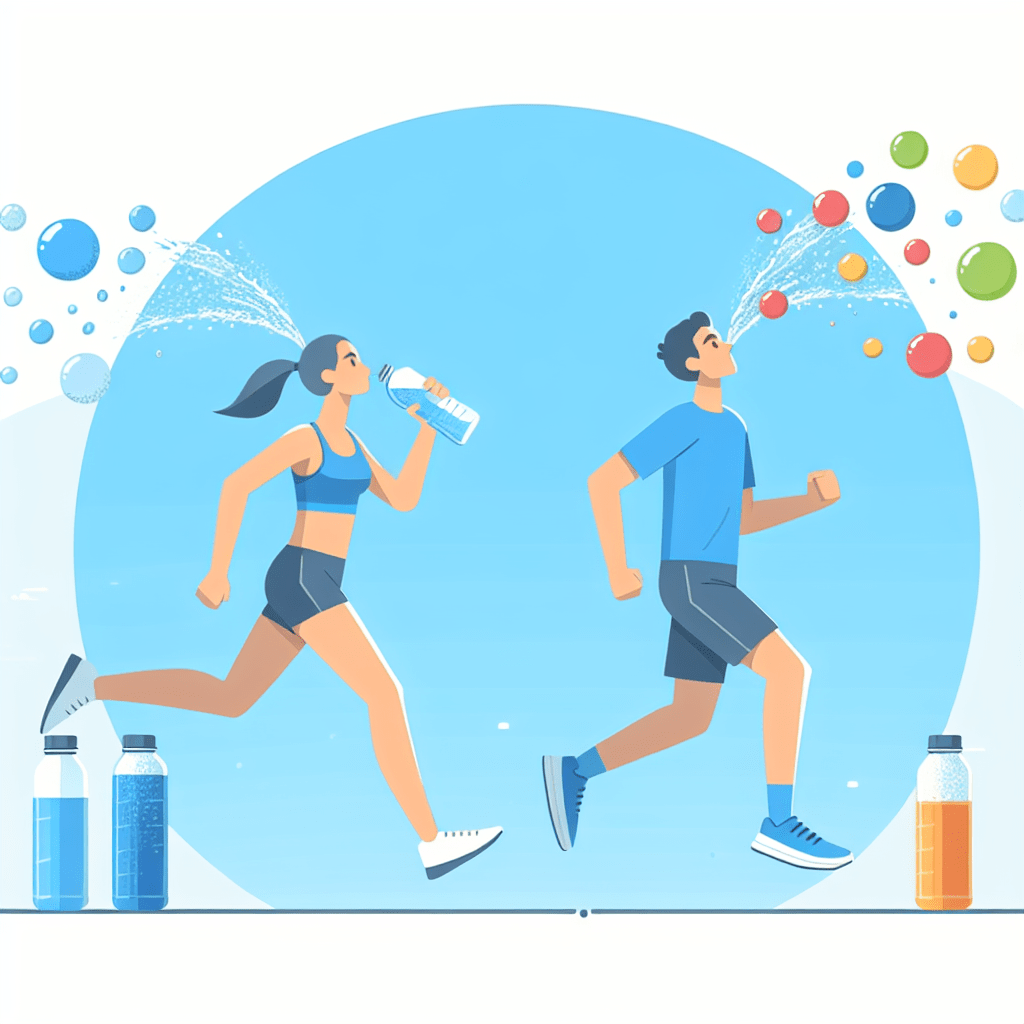Water vs. Sports Drinks: What’s Best for Long-Distance Running?

Introduction
Running long distances is a physically demanding activity that requires proper hydration to maintain performance and prevent dehydration. The question of what's best to drink, water or sports drinks, has been a topic of discussion among athletes and fitness enthusiasts for years. This article aims to shed light on this debate, providing insights from scientific research and expert opinions.
Understanding Dehydration
Dehydration is a condition that occurs when the body loses more fluids than it takes in, disrupting the balance of salts and sugars present in the blood. It can lead to a decrease in performance and potentially serious health complications. "Dehydration can significantly impair performance, even when the level of dehydration is relatively low," says a sports nutritionist.
The Role of Water in Hydration
Water is the most essential nutrient for life. It plays a crucial role in maintaining body temperature, lubricating joints, and transporting nutrients throughout the body. Drinking water during long-distance running helps to replace the fluids lost through sweat, thus preventing dehydration. However, water alone may not be sufficient for runs lasting more than an hour.
"Water is the most essential nutrient for life."
The Benefits of Sports Drinks
Sports drinks are designed to provide hydration and replenish electrolytes lost through sweat. They typically contain carbohydrates in the form of sugars, which provide energy, and electrolytes like sodium and potassium, which aid in hydration. According to a study published in the Journal of Sports Sciences, "Sports drinks can be beneficial for long-distance runners as they provide a source of energy and help to prevent electrolyte imbalances."
Water vs. Sports Drinks: What's Best for Long-Distance Running?
The choice between water and sports drinks largely depends on the duration and intensity of the run. For short runs (less than an hour), water is usually sufficient to stay hydrated. However, for longer runs, sports drinks can provide the additional benefits of energy and electrolyte replenishment.
It's important to note that while sports drinks can be beneficial, they should be used judiciously. They often contain high levels of sugars, which can lead to weight gain and other health issues if consumed excessively.
"For runs longer than an hour, sports drinks can provide additional benefits."
Individual Hydration Needs
Hydration needs can vary greatly from one individual to another, depending on factors such as body weight, sweat rate, and environmental conditions. Therefore, it's important to listen to your body and hydrate accordingly. A sports dietitian suggests, "Start your run well-hydrated and drink according to thirst. If you're running for more than an hour, consider a sports drink to replenish lost electrolytes."
Conclusion
Both water and sports drinks have their place in long-distance running. Water is a great choice for shorter runs, while sports drinks can provide additional benefits for longer runs. However, it's important to remember that individual hydration needs can vary, and it's crucial to listen to your body's signals.
"Hydration is not just about drinking fluids; it's about maintaining a balance in the body."
Summary
In conclusion, both water and sports drinks can play a role in the hydration strategy of long-distance runners. For shorter runs, water is typically sufficient. However, for runs lasting longer than an hour, sports drinks can offer the added benefits of energy and electrolyte replenishment. Regardless of the drink choice, it's essential to listen to your body and hydrate according to individual needs. As one expert puts it, "Hydration is not just about drinking fluids; it's about maintaining a balance in the body."



